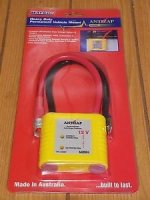TheGrendel
Hooked
First off, I have no idea how to weld. In fact, I'm not mechanically inclined in any way. Fortunately, my old college roommate taught me a ton and I've read and read online to learn about a lot of things. So, I'm getting better.
With that said, I have zero knowledge of what welding should cost. I have a pair of Evo lower control arm skids I need welded on as well as front and rear track bar brackets when I do my lift.
Can you guys give me a general idea, so I don't get completely ripped off?
With that said, I have zero knowledge of what welding should cost. I have a pair of Evo lower control arm skids I need welded on as well as front and rear track bar brackets when I do my lift.
Can you guys give me a general idea, so I don't get completely ripped off?

